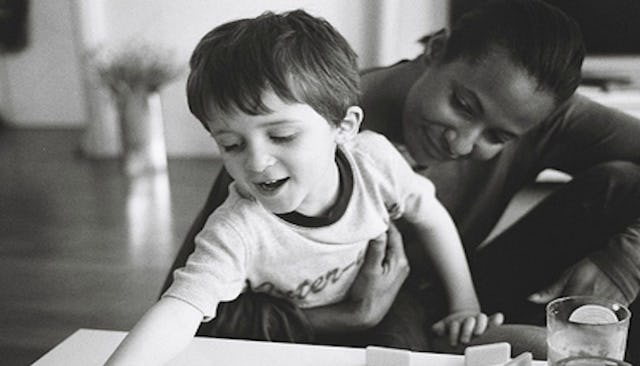Why I Won't Teach My Kids To Be 'Color Blind'

What is a good way to teach young kids not to make loud, off-color comments about people’s race?
Personally, I prefer the answers that point out that 1) people are different colors, and 2) you shouldn’t avoid that fact and discourage your child’s recognition of a truth, or near truth, making an issue out of something that shouldn’t be.
One of the most refreshing moments I’ve had as a father was when I was with a group of parents of 3-year-olds. We were discussing diversity and race and how to raise our children to be blind to such concepts and yet aware of the history of racism and prejudice. It was a tense discussion, with many ethnicities and skin colors represented in the room. Imagine my discomfort as the white (personally, light brown) male. The conversation turned for the better when someone used a popular phrase in the fight for equality: “We’re all the same!” The room pondered that for a moment and then someone said, “But we’re not.”
Trying to teach kids to be color blind and that we aren’t different sizes, shapes, talents, experiences and intellects does them the greatest disservice, and making an effort to hide these facts seems disingenuous. Yes, recognizing those traits does put people in groups, but the fact that we’re all different is something to be embraced. The issue is not that we’re different, but how we perceive, treat and live with those differences. Everyone should have equal opportunity, treatment, support and love, but people are different colors; people of the same race are different colors.
During our conversation, we acknowledged that a problem of the past has been in grouping people by race and color—but not exclusively color. The spectrum from lily white to the darkest black skin is literally that, a spectrum. Put to my kids in the most simplified way, my skin is different from theirs and their mom’s skin is different from all of ours. We’re all “white,” and yet, none of us are. The color is a valid description of our differences and nothing more.
Netflix / Master of None
About a month later, I was in a grocery store with my younger daughter and she asked of the man in line before us, “Why is he purple?” While I was mortified, the man turned and smiled, saying, “I like that. Sweetie, that’s how God made me.”
The choice of color used to describe someone is a matter of perspective. The fact that we all have a color is a wonderful thing.
This post originally appeared on Quora.
This article was originally published on